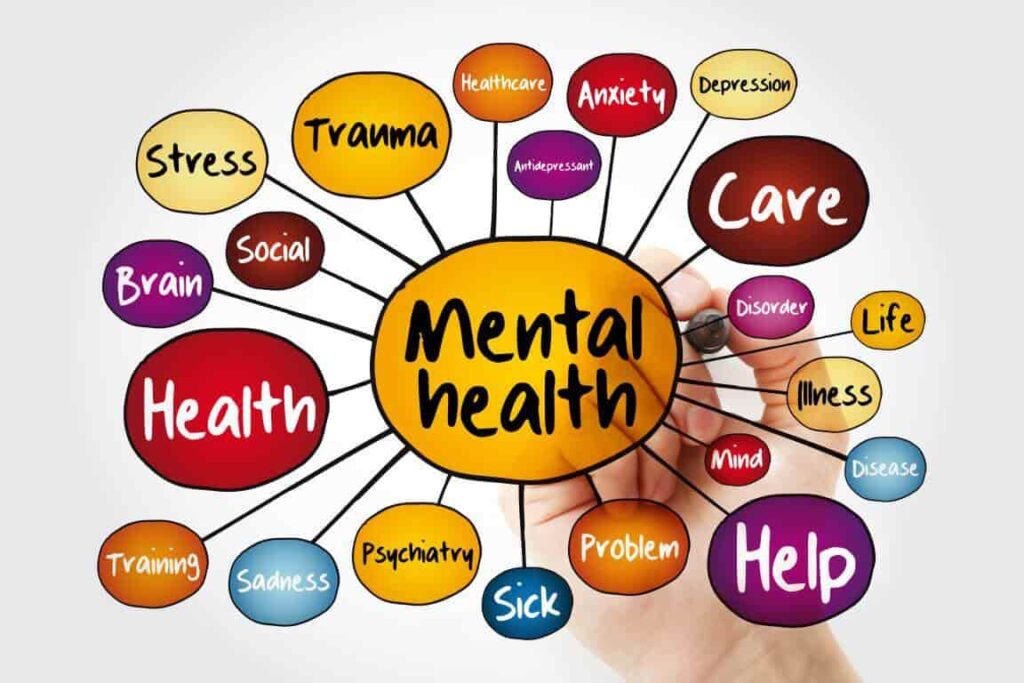
Mental disorders are one of the major health concerns affecting most people globally. In the past, mental illnesses were common among older people, but today, they affect people of all ages, including young children.
There are several causes of mental health disorders. Some of these may include chronic medical conditions, trauma, isolation, biological factors, abuse, violence, drug abuse, and much more. When you feel like you’ve got a mental health issue, you need to visit a mental health clinic to get the right diagnosis and help.
This article walks you through some common signs of a mental health problem. Understanding these signs allows you to seek proper medication and from the right mental health professional. But before diving into these signs, you first need to understand what mental health is. Read on to get enlightened.
What Is Mental Health?
Ideally, mental health covers a person’s cognitive well-being. In other words, it’s how well someone’s brain works. Mental health affects how people feel, think, or behave.
So if your mental health is impaired or you’re suffering from mental health disorders, you won’t be able to think appropriately or make the right decisions.
What Are The Signs Of A Mental Health Problem?
There are many signs to show that you’ve got a mental health issue. This may be a difficult time for you, but you also need to look out for the following symptoms so you can get the right help:
1. Depression
Depression is one of the most common signs of a mental health disorder. It’s a mood disorder where people develop a lack of interest. In simpler terms, they become too overwhelmed by feelings of sadness to do anything.
A depressed person can also lack concentration, lose weight, and develop a feeling of anger and hopelessness. That’s why some depressed people end up victims of their own thoughts and take the easy way out.
You can avoid this by visiting a mental health professional. A specialist can provide counseling services or give medication where necessary.
2. Anxiety
Though getting stressed and developing anxiety is a common phenomenon, you should be worried if the situation persists. This is because it can be a sign of a mental health disorder.
Common anxiety symptoms include an upset stomach, fatigue, dizziness, high blood pressure, and breathing problems. Prolonged anxiety can cause depression or even death. Therefore, if you feel one of these symptoms, you need to seek medical attention from a professional mental health doctor.
3. Decline In Productivity
When working, if you notice a sharp decline in your productivity, then you might be suffering from a mental health disorder. This is because mental health issues can interfere with your brain, thus losing your focus and concentration when working.

Also, negative thoughts might distract you from producing quality and the required amount of work. So if you find a decline in your productivity for a couple of days, you might be suffering from a mental health problem. Seek help from a mental health professional immediately to help you address this condition.
4. Loss Of Appetite
Loss of appetite can be another sign of an underlying mental health condition. Though your desire for food can vary from time to time, you should be worried when you lose appetite for months or weeks.
When you’re suffering from a mental health disorder, it can trigger psychological and emotional changes in your body. The main aim of these changes is to help your body deal with the underlying mental health issue symptoms. This can affect your digestive system, thus losing your appetite.
Although most mental health disorders make you lose appetite, others may force you to overeat. So when you find yourself eating too much or little, the best idea is to seek treatment from a mental health professional.
5. Insomnia
Another common sign of a mental health disorder is insomnia. Insomnia is a sleep disorder that can affect your daily sleep patterns. This causes you to find it hard to stay awake or to sleep for the recommended hours.
There are two major types of insomnia: primary and secondary insomnia. Primary insomnia is a sleep disorder not linked to any other health condition. On the other hand, secondary insomnia is when you find difficulty sleeping because of other underlying health conditions.
However, these two conditions can either be acute or chronic. That’s why you need to visit a mental health professional for check-ups and medication. A doctor can examine you and help you know the real cause of your insomnia.
How Can You Find The Best Mental Health Doctor?
Working with the right doctor is the best way to ensure you get a proper assessment and a plan to help you mitigate the lasting effects of any mental health disorder. With that said, there are few ways of choosing the right mental health professional in your region. Here are ways to help you out:
Asking For Recommendations
Asking for recommendations is one of the most effective ways of finding the best professional. This involves finding people who’ve been treated for similar mental health disorders. These can be your relatives, friends, or colleagues.
If you feel burdened by a mental health issue, ask around and look for recommendations. After getting a few suggestions, list them down and then do your research to find the best doctor from your list.
Consider The Distance
Distance is another important factor you need to consider when selecting your mental health physician. For that reason, you need to find a doctor near you. Working with a doctor from your local area is vital because some mental health issues can arise at any time.
Therefore, you need to find someone near you in case of emergencies. This also ensures you have someone there to help and listen even outside working hours.
Qualifications And Experience
You should also work with a qualified and experienced mental health professional. For that reason, you need to find a doctor who’s specialized in cognitive health matters. So before you work with any mental health physician, it’d be a good idea to see their qualifications.
Besides, your chosen specialist needs to have many years of working experience. This is important because a professional with many years of experience can provide better services and can guide you to a better outlook in life.
Takeaway
Mental health is a major component of the general well-being of all human beings. That’s why you need to take good care of yourself. One excellent way to take care of your mental health is by visiting a specialist when you experience one or more symptoms.
These symptoms include depression, insomnia, anxiety, loss of appetite, and decline in productivity. Don’t forget, there is always someone there who can help.
